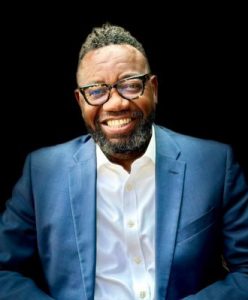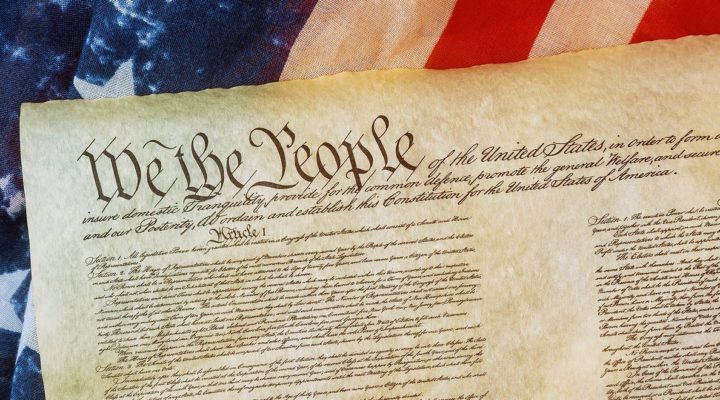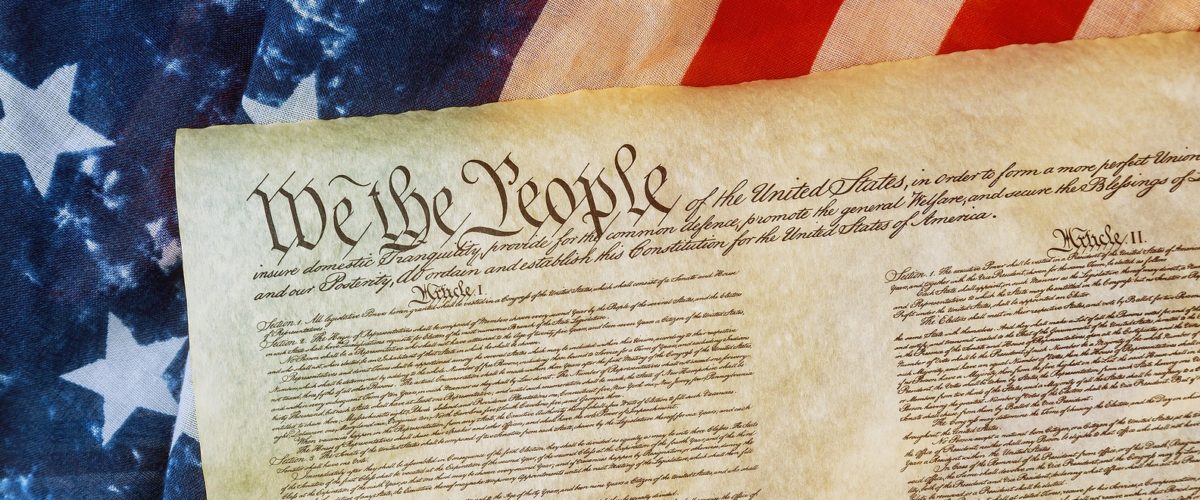Juneteenth and Independence Day offer models of the kind of religious freedom America should embrace, according to Interfaith Alliance President Paul Raushenbush.
“On July Fourth in 1776, the Founders declared independence from a king who was given absolute power because of his position and could really do anything. And the folks who lived in the United States at that point, not the United States but the colonies, said ‘no,’” Raushenbush explained during a recent episode of “The State of Belief” podcast.

Paul Raushenbush
Raushenbush was joined by Thomas L. Bowen, an ordained Baptist minister and White House senior adviser for faith engagement. Together, they discussed the threat Christian nationalism poses to democracy and religious liberty today and the role faith could play in restoring and sustaining the values guaranteed in the U.S. Constitution.
“Religion is nothing if I treat someone in a way that denies their humanity,” said Bowen, who also serves as minister of justice at Shiloh Baptist Church in Washington, D.C.
“We are made, as Jewish theologian Martin Buber has said, in the imago dei — the very image of God. We have to see that in each and every person. It humanizes us to a great degree, and all of my interactions with people from various faith traditions have helped me to understand this.”
Juneteenth, the historic observance of the end of American slavery enshrined as a national holiday in 2021, also offers a blueprint for maintaining hope through challenging times, Bowen said.
The annual June 19 observance recalls “the long hard night of slavery and subjugation that breaks away into a brighter morning to come. It’s an especially poignant message at a time when many states are banning books and teachings about Critical Race Theory, African American history and the struggle for racial justice, Bowen said.
“There are some who want to take things out of our history books,” he added. “The president is bent on making sure we highlight those things, and he’s also bent on making sure we continue to make Black history American history going forward.”

Thomas L. Bowen
The message of hope contained in Juneteenth also is present in the Fourth of July because both holidays “grow out of tyranny,” Raushenbush said.
“Celebrating that intention on July Fourth is important because it represents a kind of throwing off of tyranny in its own way,” he explained. “These are celebrations of liberation and should not be coopted into an entrenchment of oppressive forces.”
But oppressive forces have been making a comeback and recently notched a victory with a July 1 U.S. Supreme Court ruling that presidents have absolute immunity in exercising core constitutional actions and enjoy a presumption of immunity for other presidential acts, the speakers said.
The decision came in the case of Trump v. United States which considered the former president’s interference in the 2020 election and his incitement of the January 6 insurrection at the U.S. Capitol.
“Congress may not criminalize the president’s conduct in carrying out the responsibilities of the Executive Branch under the Constitution,” Chief Justice John Roberts wrote for the court majority. “And the system of separated powers designed by the Framers has always demanded an energetic, independent executive. The president therefore may not be prosecuted for exercising his core constitutional powers, and he is entitled, at a minimum, to a presumptive immunity from prosecution for all his official acts.”
Writing for the minority, Justice Sonia Sotomayor said the conservative court’s decision violates the Constitution’s impeachment clause, which makes any official impeached by the U.S. Senate liable for criminal indictment. Trump was impeached twice during his term as president.
“Never in the history of our republic has a president had reason to believe that he would be immune from criminal prosecution if he used the trappings of his office to violate the criminal law,” she wrote. “Moving forward, however, all former presidents will be cloaked in such immunity. If the occupant of that office misuses official power for personal gain, the criminal law that the rest of us must abide will not provide a backstop. With fear for our democracy, I dissent.”
Raushenbush said the high court’s decision runs counter to the democratic freedoms contained in the Constitution and commemorated in American independence.
“We were never meant to have a king who could do anything.”
“Just reflecting on this moment we’re in, we were never meant to have a king who could do anything,” he said. “And I’m very sorry for what has happened with the Supreme Court and I am just lamenting that. The Declaration of Independence also indicated that we all have a right to be happy to life, liberty and the pursuit of happiness, and that no one — no king and no president with immunity — could dictate to us what our happiness and our liberty is.”
Christian nationalists, meanwhile, are taking a similar approach in attempting to narrow the definition of religious liberty to include only themselves, Bowen said. “People have weaponized religion when it ought to be medicine but there are some who are bent on making it otherwise. … One thing I’m concerned about is when we use religion to justify our discrimination, to justify our sexism.”
And while these are difficult times, they are not impossible to get through, he added.
“If I was in my pulpit, I would say there is a bright side somewhere and don’t you stop until you find it. Look for the good people. We give too much time and energy to the bad players. And there are a lot of folk who have hijacked religion. But religion at its best brings people together. Religion at its best lifts people up. Religion that is best gives hope to individuals and religion at its best allows us to be a better people, a better country and a better world.”


